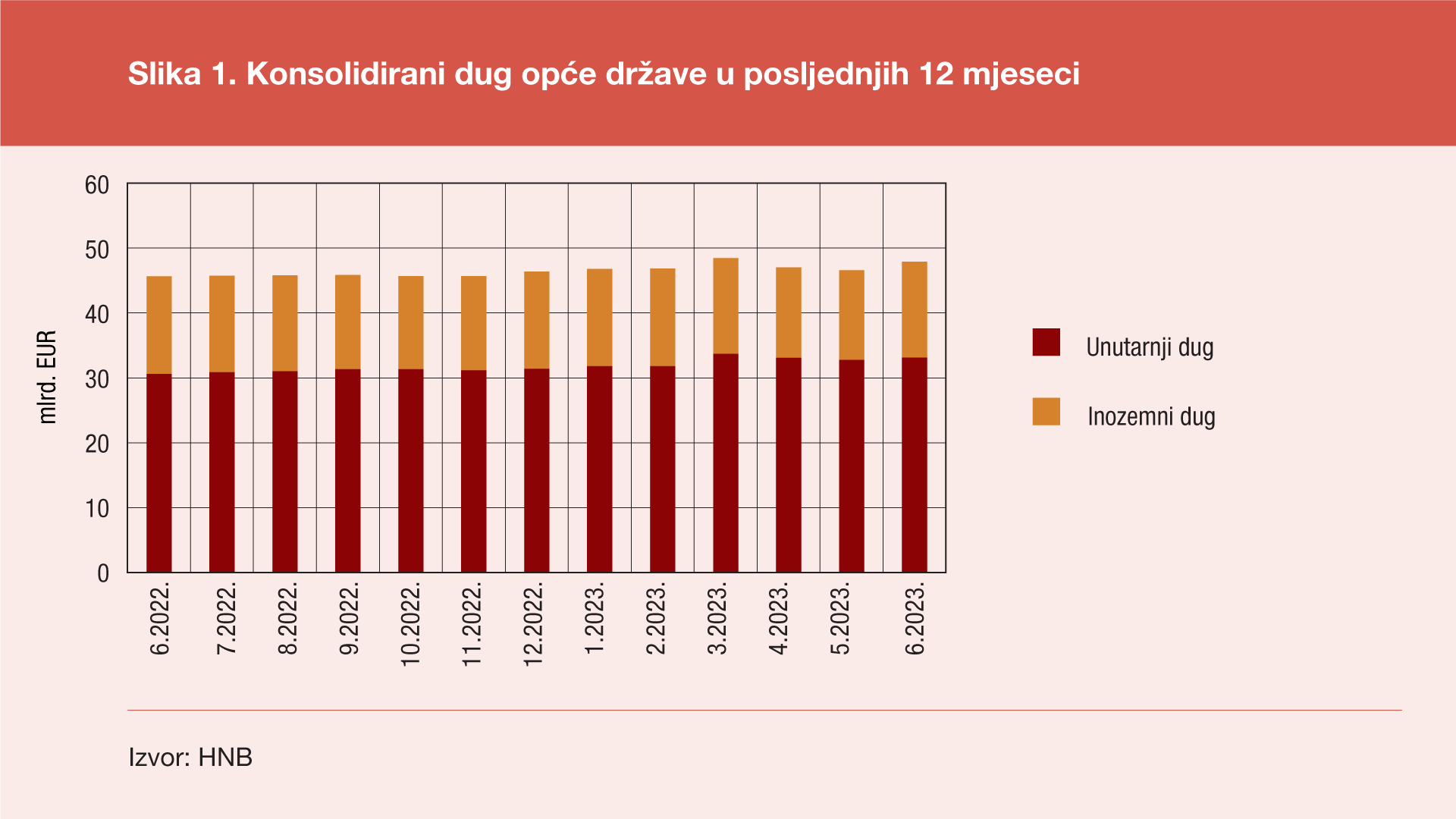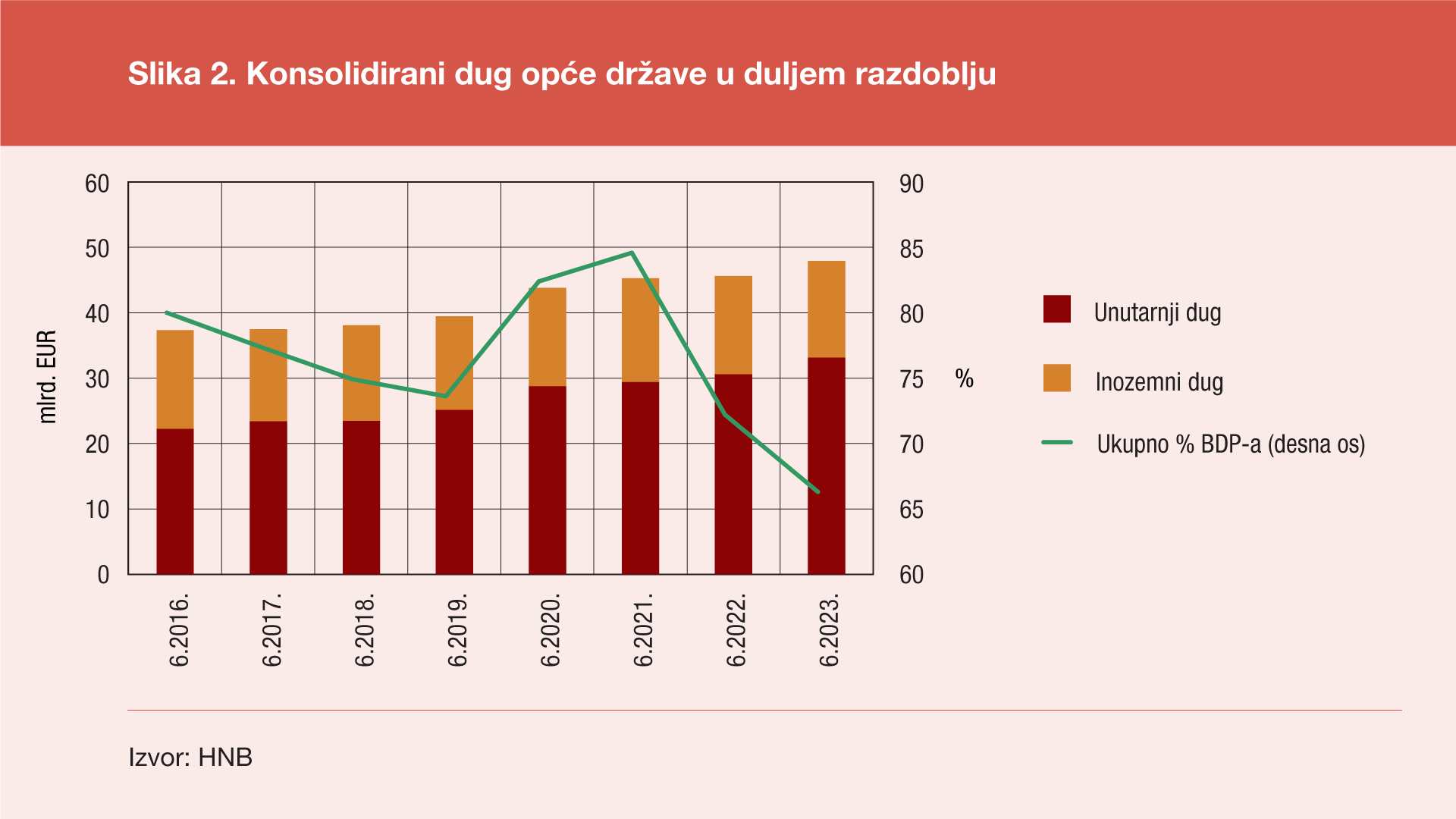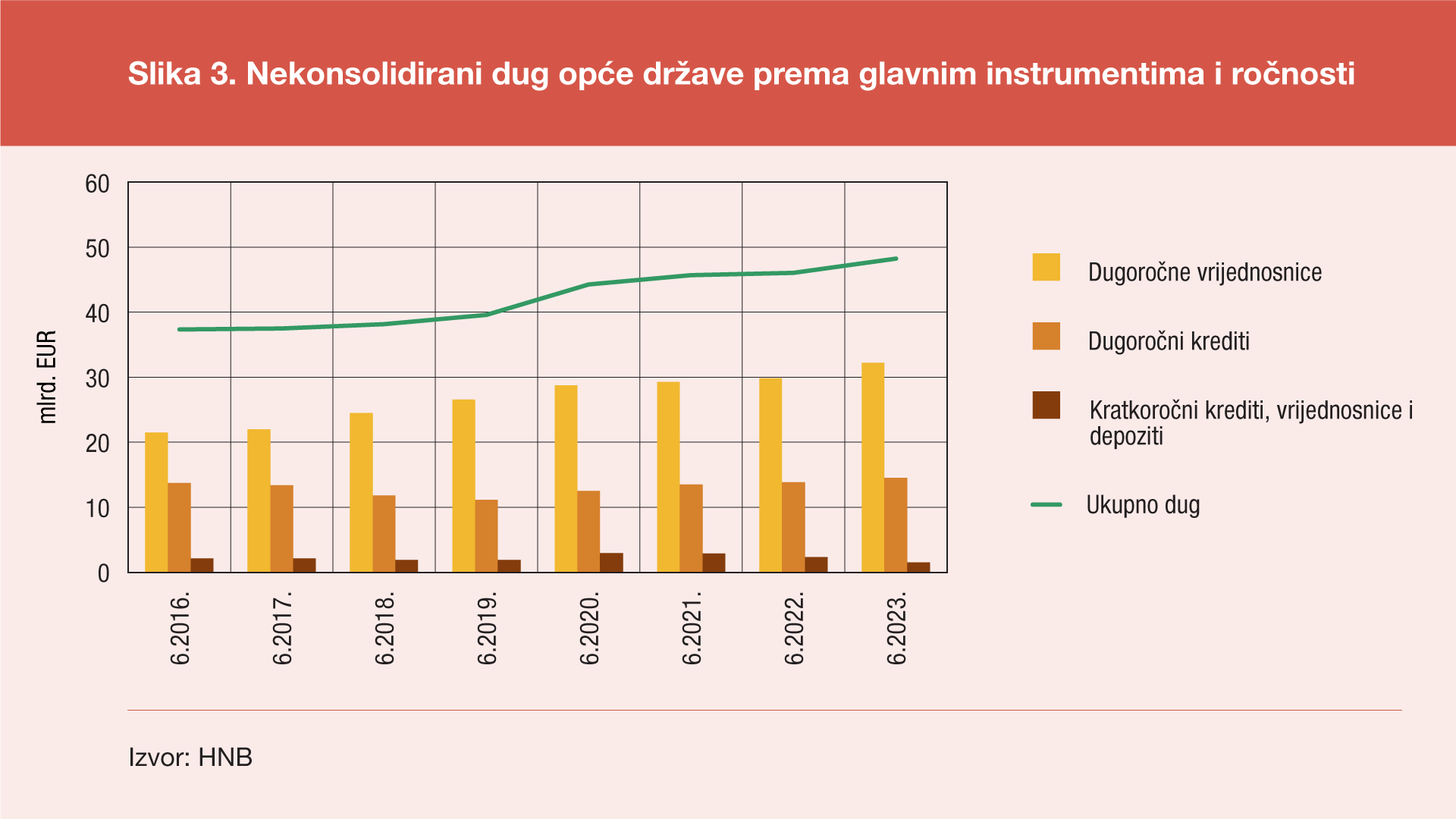Statistička priopćenja daju sažet pregled najnovijih objavljenih vrijednosti i smjera kretanja serija statističkih pokazatelja koje objavljuje Hrvatska narodna banka.
Statistika
- Kalendar objava
- Statistička priopćenja
- Pokazatelji poslovanja bankovnog sustava
- Glavni makroekonomski indikatori
-
Statistički podaci
-
Financijski sektor
- Doprinos Republike Hrvatske monetarnim agregatima europodručja
- Konsolidirana bilanca MFI-ja
- Središnja banka (HNB)
- Druge monetarne financijske institucije
- Druga financijska društva
- Sektor opće države
- Sektor inozemstva
- Financijski računi
- Vrijednosni papiri
- Odabrane nefinancijske statistike
- Platni sustavi
- Platne usluge
- Gotov novac
- Promet ovlaštenih mjenjača
- Arhiva
-
Financijski sektor
- SDDS
- Regulativa
- Informacije za obveznike izvještavanja
- Informacije za korisnike statističkih podataka
- Korištenje povjerljivih statističkih podataka HNB-a za znanstvene svrhe
- Anketna istraživanja
- Eksperimentalne statistike
Statistička priopćenja
Objava statističkih pokazatelja duga opće države za lipanj 2023.
Prema konačnim[1] podacima statistike državnih financija za drugo tromjesečje 2023. ukupno stanje konsolidiranog duga svih podsektora opće države[2] na kraju lipnja 2023. godine iznosilo je 47,9 mlrd. eura, pa je u odnosu na kraj ožujka 2023. ostvaren pad od 0,5 mlrd. eura (ili 1,1%), a u odnosu na kraj lipnja 2022. taj je dug veći za 2,3 mlrd. eura (ili 5,0%). Taj rast duga na godišnjoj razini uzrokovan je kombinacijom pada inozemnog duga za 0,27 mlrd. eura (ili 1,8%) i porasta unutarnjeg duga za 2,54 mlrd. eura (ili 8,3%). U odnosu na kraj prethodnog tromjesečja unutarnji je dug pao za 0,57 mlrd. eura (ili 1,7%), a inozemni dug porastao je za 0,05 mlrd. eura (ili 0,4%).

Promatrano u odnosu na godišnji BDP[3], ukupni dug na kraju lipnja 2023. godine iznosio je 66,5% BDP-a, a na kraju lipnja prethodne godine taj je udio iznosio 72,4%, što je smanjenje od 5,9 postotnih bodova na godišnjoj razini i smanjenje od 2,6 postotna boda u odnosu na kraj prethodnog tromjesečja, kada je taj udio iznosio 69,1%.

Podaci o strukturi duga opće države po glavnim dužničkim instrumentima i ročnosti duga dostupni su samo za nekonsolidirani dug[4] opće države. U njoj prevladavaju dugoročni dužnički instrumenti, pa tako na kraju lipnja 2023. godine najveći udio u tom dugu imaju obveznice (66,8%), drugi su po važnosti dugoročni krediti (30,1%), a posljednji su kratkoročni krediti, vrijednosnice i depoziti (zajedno 3,1%). Pritom je kratkoročni dug na kraju lipnja 2023. godine bio za 0,8 mlrd. eura (ili 35,3%) manji u odnosu na kraj lipnja 2022., a dugoročni se dug u istom razdoblju povećao za 3,0 mlrd. eura (ili 6,9%).

Vremenske serije statističkih podataka: Tablica I3 Dug opće države (ESA 2010).
-
Podaci su potvrđeni od strane EUROSTAT-a u sklopu procesa notifikacije fiskalnog izvješća. ↑
-
Dug koji isključuje međusobna potraživanja institucionalnih jedinica unutar istog podsektora i između podsektora, tzv. maastrichtski dug. ↑
-
Izračunat kao zbroj prethodna četiri tromjesečna BDP-a ↑
-
Nekonsolidirani dug čini maastrichtski dug uvećan za međusobna dužnička potraživanja između jedinica u sektoru opće države. ↑
